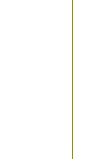Day 6 - 1 day before Passover
Tuesday Night the Chief priests, scribes, and elders met in the palace of the high priest (Caiaphas). After the last Passover supper, Jesus and the eleven went the Mount of Olives where he prays. The disciples overcome with drowsiness fall asleep. Judas leads a band out to the Mount of Olives where Jesus is arrested. When the crowd arrives to arrest Jesus he says,
"Every day I sat in the temple courts teaching, and you did not arrest me. But this has all taken place that the writings of the prophets might be fulfilled."
"Yet it was the Lord's will to cause him to suffer, and though the Lord makes his life a guilt offering, he will see his offspring and prolong his days??ause he poured out his life unto death." Isaiah 53:10-12
Jesus said, "If you are looking for me, then let these men go." This happened so that the words he had spoken would be fulfilled: "I have not lost one of those you gave me."
The disciples, despite their bluster of bravery abandon their master and teacher.
?? it is written: "'I will strike the shepherd, and the sheep of the flock will be scattered. But after I have risen, I will go ahead of you into Galilee."
Again Jesus makes prophecy of his own as he says to Peter,
"This very night, before the rooster crows, you will disown me three times."
As Jesus stands before Annas, father in law to Caiaphas, the high priest, he continues to fulfill prophecy even by his silence.
.
"He was oppressed and afflicted, yet he did not open his mouth, he was led like a lamb to the slaughter??p;quot; Isaiah 53:7
Jesus is brought before Annas the "high priest." Annas and Caiaphas seem to both "represent" the high priest although Annas' son-in-law, Caiaphas holds the title. Jesus is held and abused all night. Peter denies Jesus three times then sobs bitterly. John witnesses everything because he is known to the high priest and has access to the proceedings.
Again Jesus prophesies about the distant future as he speaks to the Jewish leaders.
Jesus replied. "But I say to all of you: In the future you will see the Son of Man sitting at the right hand of the Mighty One and coming on the clouds of heaven."
The Denial Accounts
An interpretation of the denial accounts has caused scholars some discomfort over the years. The primary focus of concern is that the prophecy in Matthew is markedly different from the one given in Mark.
"This very night, before the rooster crows, you will disown me three times." Matthew
"Today-- yes, tonight-- before the rooster crows twice you yourself will disown me three times." Mark
We have two choices here. We can assume one of the Gospels is slightly mistaken, or we can assume that both prophecies are accurate in describing one event. We will work under the assumption that the Gospels are, by divine inspiration, always an accurate witness. From this point of view, our understanding is actually enhanced if we consider situations, which match all the facts as presented. Since the prophecies are fundamentally different, we will assume that Jesus prophesied one event twice in two different ways. Once we force ourselves to consider this possibility, it is encouraging to find that there is at least one set of circumstances which fulfills both prophecies accurately and simultaneously. Perhaps God was giving himself a prophecy challenge.
Solution: Peter begins his third denial and as Peter is speaking the rooster crows. It crows again immediately after he finishes speaking.
"Immediately a rooster crowed." Matthew
"Immediately the rooster crowed the second time." Mark 14:72
"Just as he was speaking, the rooster crowed" Luke
"Again Peter denied it, and at that moment a rooster began to crow." John
Some may argue that this very minor discrepancy is not worth all the mental energy. I, however, find it gratifying whenever an "irreconcilable conflict" turns out to be more a matter of laziness on the part of commentators than an "error" within the text.
|


